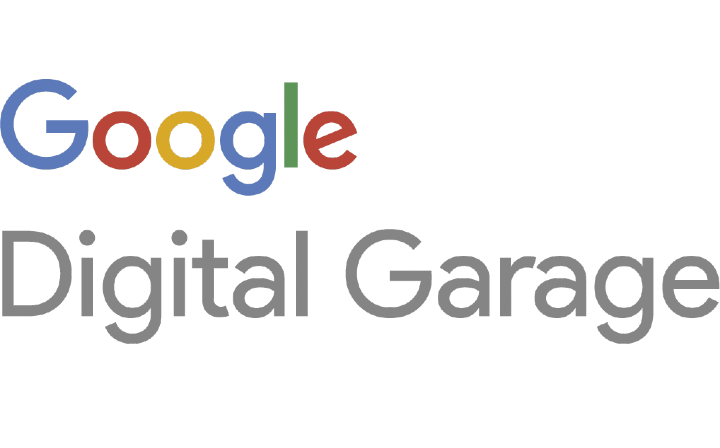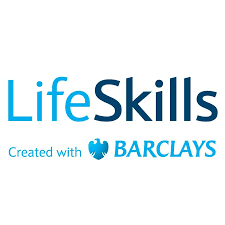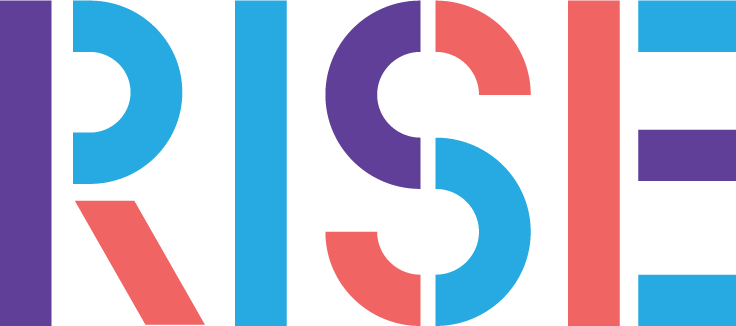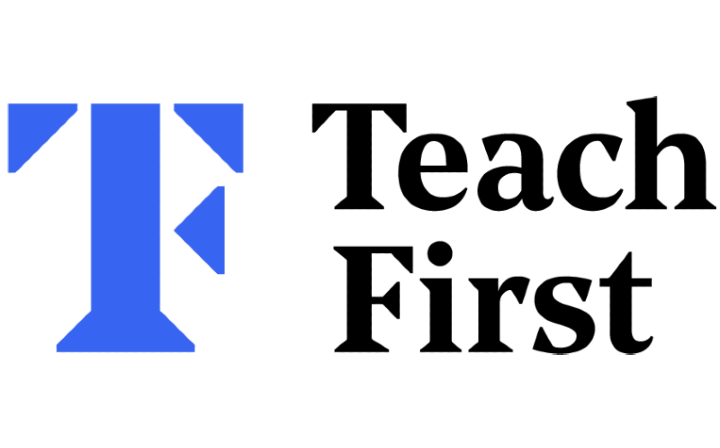Explore the ScaleUp Annual Review 2022
Select a section to expand and explore this year's review..
CONTENTS

Introduction 2022

Chapter 1 2022
The ScaleUp Business Landscape

Chapter 2 2022
Leading Programmes Breaking Down the Barriers for Scaleups

Chapter 3 2022
The Local Scaleup Ecosystem

Chapter 4 2022
The Policy Landscape

Chapter 5 2022
Looking forward

Annexes 2022

SCALEUP STORIES 2022
Programme
Careers & Enterprise Company [2022]


Talent and Skills
Impact for scaleups

4,407
Schools and colleges participating

4,200+
Enterprise advisors

24%
Increase in scholls

300+
‘Cornerstone’ employers are working directly with Careers Hubs

Over 2/3
of schools and Colleges are in a Careers Hub
Key sectors














The Careers & Enterprise Company’s (CEC) mission is to help every young person to find their best next step from education and into the wider world. It does this by linking schools and colleges to employers via its network of more than 4,000 volunteer Enterprise Advisers who come from the business world and supporting Careers Leaders in schools with training and resources. 4,407 schools and colleges have joined CEC’s network and adopted the Gatsby Benchmarks of good careers guidance.
Their expanded Career Hubs offer now covers more than two thirds of schools and colleges. Each Hub is built on a dynamic partnership between schools, colleges, LEPs and local authorities working with local employers. They give young people the opportunity to connect closely to local skills and economic needs.
The near universal adoption of the Gatsby Benchmarks of careers education has created a national measure of performance. Through CEC’s digital tools, schools and colleges are reporting progress across the Benchmarks in all parts of the country. Over the past three years the most disadvantaged schools have reported the most improvement
The Careers & Enterprise Company has also focused on enhancing support to schools and colleges including help with transition and those students facing the biggest barriers. Its programmes of support include:
- An award-winning programme with Burberry Foundation and Teach First focused on raising awareness of the huge range and diversity of careers in the creative industries and preparing young people to take their next step into the workplace. It reached over 90,000 students across 120 schools, trained 178 new teachers and placed Enterprise Coordinators and Advisers in more than 40 schools. It has now been rolled out across the country, reaching more than 300,000 young people and teachers.
- The CEC designed the ‘Effective Transitions Fund’ in partnership with JP Morgan Chase. Interventions are delivered through Hubs and are targeted at young people eligible for free school meals (FSM) at points of transition. Examples include support for excluded black boys in London, working-class boys in Liverpool, pupils with special educational needs and disabilities in the North East, and girls on FSM across the Leeds City Region.
- Amplifying Technical and Vocational Pathways, a key source of talent for Scale Ups, through the development of resources with sector partners such as ASK Education and the Association of Employment and Learning Providers. This includes supporting employers and providers to engage meaningfully with learners and providing guidance to schools on different pathways (such as T-Levels) available to students.

Programme
Debate Mate [2022]


Talent and Skills
Impact for scaleups

200
Primary and secondary schools covered in the last 12 months

4,000
Students reached per teaching week

80%
Pupils said they feel more confident speaking up in class

86%
Pupils more likely to put ideas forward when working in a group

89%
Pupils feel the skills gained would help them succeed in future

99%
Teachers believe students are better at critically responding to arguments
Key sectors














Debate Mate has been delivering debating clubs in schools in areas of high social deprivation to enhance key employability skills since 2007. Providing skills much in demand by scaleups and businesses across the economy, debating develops transferable skills in teamwork, communication, core confidence, and critical and creative thinking.
The charity focuses exclusively on delivering programmes in primary schools which have had more than 23% of pupils on free school meals for the past six years and 28% in secondary schools. In the last year, the school programme has reached over 4,000 students per teaching week from 200 primary and secondary schools in seven cities across the UK.
The programme plays a major role in developing a range of the key future skills much in demand by scaleups, it supports and enhances critical and analytical thinking because they require students to analyse a topic and produce arguments for and against it. They also have to exercise judgment and decision making and may have to argue for a side that they don’t necessarily agree with, which requires critical analysis, problem solving, and empathy. In a 2021 survey 80% of respondents said they felt more confident speaking up in class and 86% said they were more likely to put their ideas forward when working in a group as a result of the programme.
To support the ongoing development of Debate Mate Schools through reinvesting profits, the programme’s parent company Debate Mate Ltd also designs and delivers communication and leadership training for the professional world, including early careers as well as diversity, equity and inclusion training. It has worked with a number of large corporates but is now seeing demand for its services in scaling companies.
Debate Mate’s Boardroom to Classroom element facilitates increased encounters between students and employers. Through this curated interaction students are able to share their debating expertise with professionals, while the professionals share their experience of the world of work and offer meaningful careers advice and understanding of entrepreneurship.
Debate Mate also delivers a series of summer programmes to disadvantaged young people outside the UK; countries include Mexico, Zambia, Kenya, Nepal and Rwanda, with sessions designed to equip participants to run their own debate clubs in their schools or communities after the programme ends. Debate Mate Virtual furthers this international reach with more than 2,500 students from over 40 countries.

Programme
F4S [2022]


Talent and Skills
Impact for scaleups

1,705
Educators supported

31,000
Volunteers on the platform to choose from

800
Volunteers mentoring teachers and small businesses

560,688
Young people engaged with employers

1.4m+
Employer encounters to date
Key sectors














F4S is an educational-tech charity giving children and young people the opportunity to meet the people who are creating the jobs of tomorrow in their classrooms today.
It works with volunteer business leaders drawn from early stage scaling and scaleup businesses and provides a simple free-to-use digital platform for educators to connect with local business leaders and professionals.
Alongside its core activities its webinar service breaks down barriers to engagement and helps to connect students and business volunteers based in rural locations. This is supported by a series of webinars for educators to guide them through F4S’ online platform and provide advice on how to make the most out of the encounters for their students.
FS4 equips young people with an entrepreneurial mindset, social and problem solving skills as well as giving them an understanding of growing sectors with a focus on STEM and business and finance. It covers roles available in these sectors, career paths and educational and vocational routes into these careers.
F4S is also offering a suite of support through the Digital Boost programme, delivered in partnership with BCG Digital Ventures. The programme equips leaders and employees of small businesses and charities with digital knowledge to help them grow their organisations. It connects people who want to upskill with volunteer digital mentors for one-to-one sessions, workshops and tailored recommendations for action. More than 3,500 volunteer hours are offered each week.
In its first year Digital Boost connected 3,500 organisations with 2,400 mentors. Approximately half of those helped identify as female and more than 35 per cent are from ethnic minority backgrounds. Based on an average salary, the economic value of volunteer hours is estimated at £7.5 million a year.

Programme
Google Digital Garage [2022]


Talent and Skills
Impact for scaleups

700,000+
Trained since 2015

20
Webinars provided each week

40+
Hours of learning through online courses

10,000
Hours of free 1:1 support or mentoring on offer

£25m
Worth of advertising credits
Key sectors














Google Digital Garage was first set up in 2015, to provide free digital skills training for individuals as well as small and scaling businesses. Participants are helped to use online tools and social media as well as maps and data analytics.
More than 700,000 people have been trained since 2015 to support the growth of their business or expand their career. The programme offers online courses; in-person and virtual webinars and skills certifications; while through its partnership with Digital Boost it connects small businesses and charities with Digital Garage coaches and Google employees who are offering 10,000 hours of free 1:1 support and mentoring.
Following the success of virtual webinars during the coronavirus lockdown Google is now offering in-person and virtual sessions and has expanded the series of courses available, including a series of training in tools and resources for remote working. It delivers around 20 webinars and trains more than 500 people each week. In total over 20,000 individuals have received training delivered virtually.
In 2022, the Skills To Go campaign was launched, created by Redwood BBDO, to encourage people to to learn valuable new digital skills that could allow them to grow their business; expand their career or earn additional income at different times of the day. Initially, 400 assets were delivered throughout the campaign, which ranged from DOOH, Video On Demand, Spotify, social, display, and national print. This led to a website relaunch, with content now categorized by time, directing people to full-length courses and live training — connecting the campaign to Google’s full training courses.

Programme
LifeSkills, created with Barclays [2022]


Talent and Skills
Impact for scaleups

16m+
Young people helped to prepare for the workplace since 2013

90%
Secondary schools have registered

87%
Universities registered

79%
Further education colleges registered

88%
Felt that the programme inspired action and long term change

83%
Participants reported improvement in knowledge and skills
Key sectors














LifeSkills, first launched in 2013, has provided support to more than 16 million young people enabling them to prepare for the workplace and continues to see increased participation. Over 90% of UK secondary schools, 79% of UK further education colleges and 87% of universities have now registered for the programme.
The programme brings together educators, businesses, young people and their parents, providing interactive tools for young people to learn in their own time or with their parents through a dedicated parents and families section.
The content is designed to provide young people with skills, knowledge and confidence. Users can access financial education, tips on employability skills, as well as core transferable skills such as solving problems and being creative, proactive and enterprising. LifeSkills includes a virtual work experience tool to allow young people to experience a day in the life of a business and offers them a CV builder to help them stand out when applying for jobs as well as online practice assessment tests.
In addition, specific content has been designed to support young people leaving care as well as those with Special Educational Needs.
The programme is regularly evaluated for its impact. The 2021 evaluation found: 88% of young people reported that the programme inspired action and long term change; 83% highlighted significant improvement in their knowledge; and 82% felt they now had higher ambitions and aspirations. More than eight out of ten said they now knew how to tackle problems more effectively and nearly nine in ten felt more confident about the future.

Programme
RISE


Talent and Skills
RISE is a business support and growth scheme helping scaleups overcome barriers to graduate recruitment in Sheffield City Region. The initiative was first piloted in 2013 by Sheffield City Council in partnership with The University of Sheffield and Sheffield Hallam University. From 2019-2022 RISE aims to support 200 scaling businesses to create and appoint to 330 graduate roles by giving them the tools and know-how to become successful graduate employers and retain exceptional talent in the region.
RISE advisers start by holding quality open conversations with business leaders to understand their needs, aspirations and potential for growth to provide a bespoke solution. To improve the conversion rate of jobs advertised, graduate applications are attracted and assessed through to successful interview and appointment. A new step has been introduced involving delivery partner Gradconsult talking through the shortlisted applicants with the potential employer. This helps the recruiter understand how to get the best from the applicants and draw out potential areas of strength, relevant attributes, and transferable skills. It also provides the employee with a short tactical masterclass in recruitment interview techniques.
In addition, new Relationship Managers have been introduced to the programme to support growing businesses beyond the point of graduate appointment, ensuring the learning from the recruitment support is embedded and the new employee is supported to help realise the businesses growth aspirations. This 1-1 support includes tailored support based on conversations with the business lead, including introductions to appropriate academic departments within Sheffield’s universities, connecting into Sheffield’s Innovation Programme (SIP) or via the SCR Growth Hub. The aim is not simply for a business to employ one graduate, but to realise opportunities for growth from employing graduates and to become successful graduate employers time and time again.

Programme
Teach First: Careers Leader Programme [2022]


Talent and Skills
Teach First’s Careers Leader programme has now helped over 400 Careers Leaders nationally since it began in 2015. Teach First has also been a recognised provider of careers leader training through the Careers and Enterprise Company since 2018. The programme is targeted at schools serving a high proportion of disadvantaged young people.
The programme provides tailored support for Careers Leaders to draft a careers strategy and plan specific to their school’s needs. They are also given support to implement a pilot of the strategy in school Spring and Summer terms, recognising that implementation is often the hardest part of the role.
To enhance flexibility, the programme now offers a number of blended in-person and virtual training sessions and seminars providing greater personalisation as well as reducing travel time and the time participants are out of school.
One-to-one meetings are offered to reach teachers from schools in isolated areas and increase the frequency of formal touchpoints. Time is also allocated within the programme for members to visit other schools and learn from seeing good practice in action.
The programme continues to receive very positive feedback. From Teach First’s most recent evaluation, 97% report that the programme supports them to know what an excellent whole school approach to careers and employability looks like. Long-term evaluation of the programme also shows statistically significant increase in the average percentage of students going on to sustained destinations post KS4 (90.8% to 92.2%) in schools participating in the Careers Leader Programme.
The ScaleUp Institute will watch closely how the improvements in the programme delivers practical results for those leading careers education.

CONTENTS

Introduction 2022

Chapter 1 2022
The ScaleUp Business Landscape

Chapter 2 2022
Leading Programmes Breaking Down the Barriers for Scaleups

Chapter 3 2022
The Local Scaleup Ecosystem

Chapter 4 2022
The Policy Landscape

Chapter 5 2022
Looking forward

Annexes 2022

SCALEUP STORIES 2022

 Previous
Previous

Share